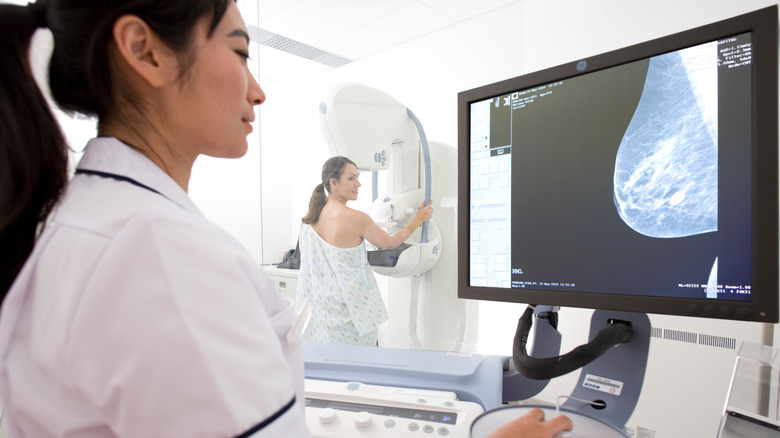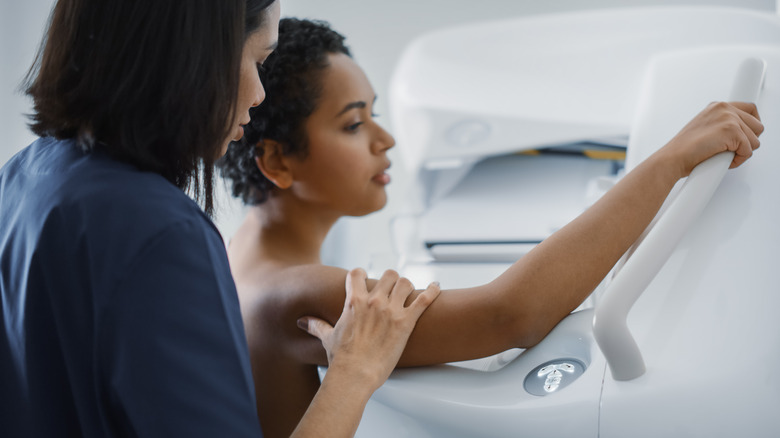The Barrier Preventing Some Women From Getting Necessary Mammograms
Most of us know that, per the CDC, after the age of 50, we should be getting a mammogram every 2 years. Still, just because we should have this important screening done, doesn't mean we're all able to. According to Johns Hopkins Medicine, a mammogram is a breast X-ray that's used to diagnose breast cancer, as well as breast disease or benign tumors and cysts.
Per Mayo Clinic, breast cancer is the second most frequently diagnosed type of cancer in the United States, so it's of the utmost importance that folks who are susceptible are screened as frequently as is necessary. Unfortunately, though, many people in the US who should be receiving mammograms aren't able to do so as a result of their proximity to a mammography center, per WebMD. While this may seem like a problem that affects only a few people, it's actually rapidly becoming a much bigger problem.
Why so many people can't get mammograms
According to a study in the Journal of the National Cancer Institute, in 2022, a whopping 8.2 million women struggled to access a necessary mammogram, because they lived over a 20-minute driving distance from the closest mammography facility. Clearly, this number is staggering, but it's even more concerning when you realize that over the course of the past 16 years, that number has increased by over 7 million people.
While the minimum distance from a mammography facility for this group was 20 minutes, many lived much further, even an hour away from the closest facility, per WebMD. While some may think that travel time is a small price to pay for a lifesaving screening, Daniel Wiese, the senior scientist with the American Cancer Society who conducted the study, argues that it's important to look at the issue in a broader context. According to Wiese, it's not just about travel time; we also have to consider what that travel time means for someone who doesn't have access to childcare or doesn't receive paid leave from work that will allow them to make the trip.
Experts are aware of some potential solutions to this growing problem. Keeping facilities open later and on weekends would give folks more opportunity to receive screenings, as would mobile screening units, which would give many more folks access. However it's done, though, it's clear from this study that healthcare needs to become more accessible to keep more people safe.

